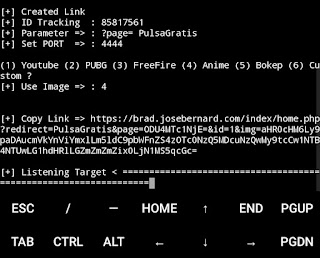Almost half of all Americans make New Year's resolutions. Many people want to improve their financial situation in addition to exercising more and eating healthier.
If you fall into this category, we can assist you. Here are seven surefire ways to make your family's financial future more secure.
Create a budget.
Making a budget is the first step toward financial fitness. Everyone must be aware of how much they earn, how much they spend, and how they intend to meet their current and future financial objectives. Budgeting information is available from the Federal Trade Commission. When you've created a budget, make sure to stick to it. In addition, go over it on a regular basis and make any necessary changes.
Management and reduction of debt
A budget can help you keep track of where your money is going. It will also help you identify areas where you are overspending. It is critical to cut out any unnecessary spending. Work on reducing your debt as well. As long as you have debt, you will be responsible for paying interest. (Always try to pay more than the monthly minimum on your credit card!) Set debt repayment goals and keep track of your progress.
3. Create an emergency fund.
An emergency fund is money set aside for unexpected expenses. It could be an unexpected home or car repair, or a job loss. Most financial advisers recommend that an emergency fund contain three to six months of essential living expenses. Obtaining those funds, however, takes time. Make the process easier by directing a portion of your paycheck to an emergency fund account. You can also instruct your bank to transfer funds to an emergency savings account. Even a small amount per week will get you there.
Purchase life insurance to protect your loved ones and review it annually.
If you pass away, your loved ones will receive money to help them maintain their standard of living. The death benefit can be used to replace your income, pay off debts such as a mortgage, and cover funeral expenses. It can also help with future needs like college tuition, retirement, and a variety of other things. Experts recommend purchasing 10 to 15 times your annual gross income in life insurance. To estimate how much life insurance you require, use an online calculator such as the Life Insurance Needs Calculator. Then, speak with an insurance professional to determine your options and obtain the proper coverage. Examine your life insurance policy once a year or after a major life change, such as buying a new home, having a baby, or changing jobs.
To protect your paycheck, you should review your disability insurance policy on an annual basis.
One of the most effective ways to protect your most valuable asset: your salary, is through disability insurance. Disability insurance typically replaces 50% to 70% of your earnings if you are unable to work due to a disabling disease or injury. An online calculator, such as the Disability Insurance Needs Calculator, can assist you in determining how much coverage you may require. Review your coverage with your HR department or an insurance agent as your salary rises.
Keep recipients updated.
It is critical to update the beneficiaries on your financial accounts, such as life insurance and 401(k) plans (k). This is especially true after major life events such as marriage, divorce, childbirth, or death. If the correct beneficiary is not specified, money may be sent to the wrong person or disbursement may be delayed.
Make your decision.
A will is a legal document that specifies what happens after you die. They could include who will distribute your assets, who will see that your wishes are carried out, and who will care for any minor children. In the absence of a will, the state may decide who inherits your children and other assets. Fortunately, it is not as difficult as many people believe. And it's well worth it because it saves your family a lot of trouble. A lawyer can help you draft a will and discuss other issues like power of attorney.
8. Save money for retirement.
Make use of all available resources to help you increase your retirement savings. Participating in your company's 401(k) plan or researching other retirement savings options such as an IRA are examples of this. Utilize any "matching money" provided by your employer for 401(k) contributions. Matching funds are, in essence, "free money." Contributions to your 401(k) also reduce your taxable income.
Follow these steps to make 2021 your year of financial fitness. Each one will contribute to a brighter and more secure future for you and your loved ones.
Why Do Single Persons Need Life Insurance?
Many people wonder if single people require life insurance.
It's easy to come to the conclusion that the answer is "no." After all, the primary goal of life insurance is to provide financial support to your family in the event of your death. So it seems reasonable to believe that if you don't have a spouse or children who rely on your earnings, you don't need life insurance.
However, there are times when a single person needs life insurance. Here are some of the most common reasons why you should consider getting life insurance if you're flying solo.
Why Do Single Persons Require Life Insurance?
You have a debt.
One of the main reasons why single people need life insurance is to avoid leaving a financial burden on others. When you have a cosigner on your loan or split a mortgage with a friend, relative, or someone else, this is common.
Private student loans can be especially taxing on cosigners. This is because, unlike federal loans, they are not discharged when you die. This could expose a cosigner, such as a parent, to tens of thousands of dollars in debt. Shared mortgages may put your co-borrower in the same boat as you.
If you have this type of debt, term life insurance is a simple and reasonable solution. If you die too soon, it will pay off your portion of the loan.
There are people who rely on you.
Simply because you are single does not mean you are unneeded. Perhaps you are a single parent with young children. You may also be responsible for elderly parents or disabled siblings. If you rely on your salary to make ends meet, you almost certainly need life insurance.
You own a business.
Almost always, the financial institution that issues your business loan will require you to have life insurance. This is to ensure that they receive their money if you die before paying off the debt.
You must obtain life insurance if you have a business partner. Your death will undoubtedly put the company in a bind. Fortunately, there is a type of insurance known as "key person" insurance that can help keep your company running in the event of your untimely death.
You intend to cover your final costs.
Did you know that the cost of a funeral can easily exceed $10,000? (If you're curious, the FTC lists all funeral costs.)
One of the main reasons why single people need life insurance is the high cost of a dignified burial. Without it, you'll have to rely on friends and family to pay your bills. (Alternatively, you might not get the proper send-off.)
You want to make more money.
Life insurance isn't just there to pay your bills if you die. Permanent life insurance can also help you while you are still alive.
Permanent life insurance provides both a death benefit and tax-deferred cash value accumulation. You can use the money you've saved to increase your personal wealth, buy a home, supplement your retirement income, pay an unexpected bill, and so on.
You want to get insurance while you're young and healthy.
Your health has an impact on whether you get life insurance and how much it costs. In general, younger, healthier individuals have an easier time obtaining life insurance. They also usually pay less for it.
For these reasons, it's usually a good idea to lock in low-cost coverage while you're still young and healthy. Obtaining life insurance can be difficult if you wait until you develop a health condition (if not impossible). Accepting this can be difficult if you have a partner or children who rely on you at the time.
You want to make a good impression.
Another reason single people need life insurance is to be able to leave money to a loved school, religious organization, charity, or individual. Some or all of the policy's revenues could be used to further a cause close to your heart. If you choose to give the money to someone you care about, it may also assist them in achieving their goals.
These scenarios show why single people need life insurance. If any of these sound familiar, show yourself some love by speaking with an insurance professional about your options.















